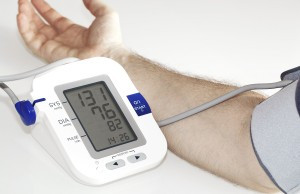
5 timeless habits for better health

What are the symptoms of prostate cancer?

Is your breakfast cereal healthy?

When pain signals an emergency: Symptoms you should never ignore

Does exercise give you energy?

Acupuncture for pain relief: How it works and what to expect

How to avoid jet lag: Tips for staying alert when you travel

Biofeedback therapy: How it works and how it can help relieve pain

Best vitamins and minerals for energy

Should you take probiotics with antibiotics?
Heart Health Archive
Articles
How much exercise is optimal for heart health?
Doing as little as 15 minutes a day can make a difference. Logging extra time helps—but only up to a point.
Regular exercise helps fend off high blood pressure, heart attacks, strokes, and a host of other chronic diseases. Despite these well-publicized benefits, most Americans aren't physically active on a daily basis. One reason may be a mistaken belief that exercise requires heart-pounding exertion and sweat. While that level of effort makes sense if you're training for a race or other athletic event, it's simply not necessary if your main concern is staying healthy.
"Unfortunately, most people have blurred the distinction between exercising for health and well-being and exercising for fitness in an athletic, competitive sense," says Dr. Harvey Simon, associate professor of medicine at Harvard-affiliated Massachusetts General Hospital. "The truth is that if you're exercising for health, it takes very little effort to see enormous benefits," he says.
Ask the doctor: What is a myocardial bridge?
Ask the doctor
Q. After some recent heart tests, my doctor said everything looked fine. But the report he sent me mentions a myocardial bridge. Should I be concerned?
A. In this condition, which is usually thought to be harmless, a segment of one of the heart's main arteries tunnels into the heart muscle and back out again instead of resting on the surface of the heart. The bridge refers to the band of heart muscle (myocardium) that stretches over that section of the artery.
Ask the doctor: Medications that affect warfarin
Ask the doctor
Q. I'm helping my mother, who is in her late 80s, keep track of her medications, as she can be a little forgetful. Her doctor just started her on warfarin, which I've heard can interact with many different medications. What are the most common ones?
A. Warfarin (Coumadin), a widely prescribed clot-preventing drug, can be affected by many medications, but antibiotics and related drugs are the most common source of problems. One example is the antibiotic that contains sulfamethoxazole and trimethoprim (Bactrim), which is often used to treat urinary tract infections and bronchitis. It interferes directly with warfarin, heightening its anti-clotting effects, which increases the risk of dangerous bleeding.
How to determine— and achieve—your target blood pressure
Take an active role by checking your blood pressure with a home monitor.
Most appointments with a health care provider begin with a gentle squeeze—the sensation of a blood pressure cuff inflating around your upper arm. But that single blood pressure reading offers only a glimpse of the health of your cardiovascular system.
"When you have your blood pressure checked in the doctor's office, you're in an artificial environment that is not reflective of the vast majority of the time when your blood pressure is going through its daily excursions," says cardiologist Dr. Elliott Antman, professor of medicine at Harvard Medical School. Throughout the course of a day, the average person's systolic b-lood pressure (the first number in the reading) may fluctuate considerably.
Do you need a cardiologist?
Your primary care provider should help you control risks for heart disease and refer you to a cardiologist if needed.
Any primary care provider you see—a doctor, nurse practitioner, or physician's assistant—should offer detailed advice on how to lessen your odds of cardiovascular disease, which is responsible for one in three deaths in the United States. However, some people need more specialized care for their hearts.
"I see or hear from a lot of people who have very common problems, like high cholesterol and high blood pressure, who think they need to see a cardiologist," says Dr. Patrick O'Gara, a cardiologist at Harvard-affiliated Brigham and Women's Hospital. For many people, a primary care physician can effectively manage those problems. But if you have specific concerns, talk to your doctor about whether more specialized care might be beneficial, says Dr. O'Gara.
Keeping the heart in the right rhythm
Implantable cardiac pacemakers help millions of people live longer and feel better.
Over the past several decades, permanent cardiac pacemakers have become a lifesaving staple of cardiovascular care. These tiny electronic devices consist of a miniature computer that is inserted under the skin of the chest. The unit sends impulses through wires (called leads) that stimulate the heart muscle to beat at regular intervals.
"There are many indications for getting a pacemaker, but nearly all involve correcting a slow heart rhythm or helping the heart to beat more efficiently," says Dr. Peter Zimetbaum, associate professor of medicine at Harvard Medical School. "In some situations, a pacemaker is needed in order to prevent death. In other cases, the device is used to improve overall heart function, which in turn also improves quality of life."
Omega-3 fatty acids: Does your diet deliver?
Most Americans don't get the recommended amount of these potentially heart-protecting fats.
Recently, a Harvard Heart Letter subscriber emailed us a question about omega-3 fatty acids, the unique fats abundant in many types of fish that may be linked to a lower risk of cardiovascular disease. Is there a difference, he wondered, between farm-raised and wild-caught salmon in terms of omega-3 fatty acid content?
It's a reasonable question, especially considering that wild salmon is often far more expensive than the farm-raised variety. But how much omega-3 fatty acid do we really need in our diets? And are fish the only source? Here's a brief summary of what you should know about omega-3s.
Eating more fruit may help lower blood pressure
The longstanding "More Matters" campaign urges Americans to eat more fruits and vegetables (see www.fruitsandveggiesmorematters.org). Evidence to support this healthy habit keeps piling up, with the latest from a study that pooled dietary data from three large, long-term studies that followed more than 187,000 people for an average of over 20 years.
The researchers found that people who ate more whole fruits—especially apples, pears, grapes, and raisins—were less likely to develop high blood pressure than those who rarely ate those foods. As for vegetables, broccoli and carrots appeared to be the best choices for staving off high blood pressure. Fruits and vegetables provide minerals such as potassium and substances called flavonoids, both of which are linked to lower blood pressure. The study was published online in the Dec. 7, 2015, issue of Hypertension.
Stronger hands linked to a healthier heart
The strength of your hands may hold clues to the health of your heart. A study in the December 2015 American Journal of Preventive Medicine found that people with stronger handgrips had more favorable findings on measures of their cardiovascular health than those with weaker grips.
The study included more than 4,200 adults ages 20 and older who were part of a nationwide health study. Researchers used a device called a dynamometer to measure each participant's hand strength, adjusting the readings based on body mass index. They found that higher handgrip strength was associated with lower blood pressure, lower triglycerides (a type of fat in the blood), lower blood sugar, and higher HDL (good) cholesterol.
Don't ignore signs of sudden cardiac arrest
You may assume that there aren't any symptoms for sudden cardiac arrest (SCA), the deadly condition that occurs when your heart suddenly stops pumping. But a study published Jan. 5, 2016, in Annals of Internal Medicine suggests that warning signs are common and often ignored. The most common warning signs were chest pain, breathlessness, palpitations, lightheadedness or fainting, nausea, and vomiting.
Researchers looked at the health information of more than 800 people who experienced SCA, mostly middle-aged men, and discovered that about half of the people had warning signs during the four weeks leading up to SCA and even 24 hours before their hearts stopped. But most of those with warning signs ignored the symptoms. Thirty-two percent of those who called 911 before SCA survived, compared with only 6% among those who didn't call for help. That's because many of the symptoms that led people to call 911 occurred in the hours just before the SCA, so these people were likely to be in a medical care setting when their hearts stopped.

5 timeless habits for better health

What are the symptoms of prostate cancer?

Is your breakfast cereal healthy?

When pain signals an emergency: Symptoms you should never ignore

Does exercise give you energy?

Acupuncture for pain relief: How it works and what to expect

How to avoid jet lag: Tips for staying alert when you travel

Biofeedback therapy: How it works and how it can help relieve pain

Best vitamins and minerals for energy

Should you take probiotics with antibiotics?
Free Healthbeat Signup
Get the latest in health news delivered to your inbox!
Sign Up











